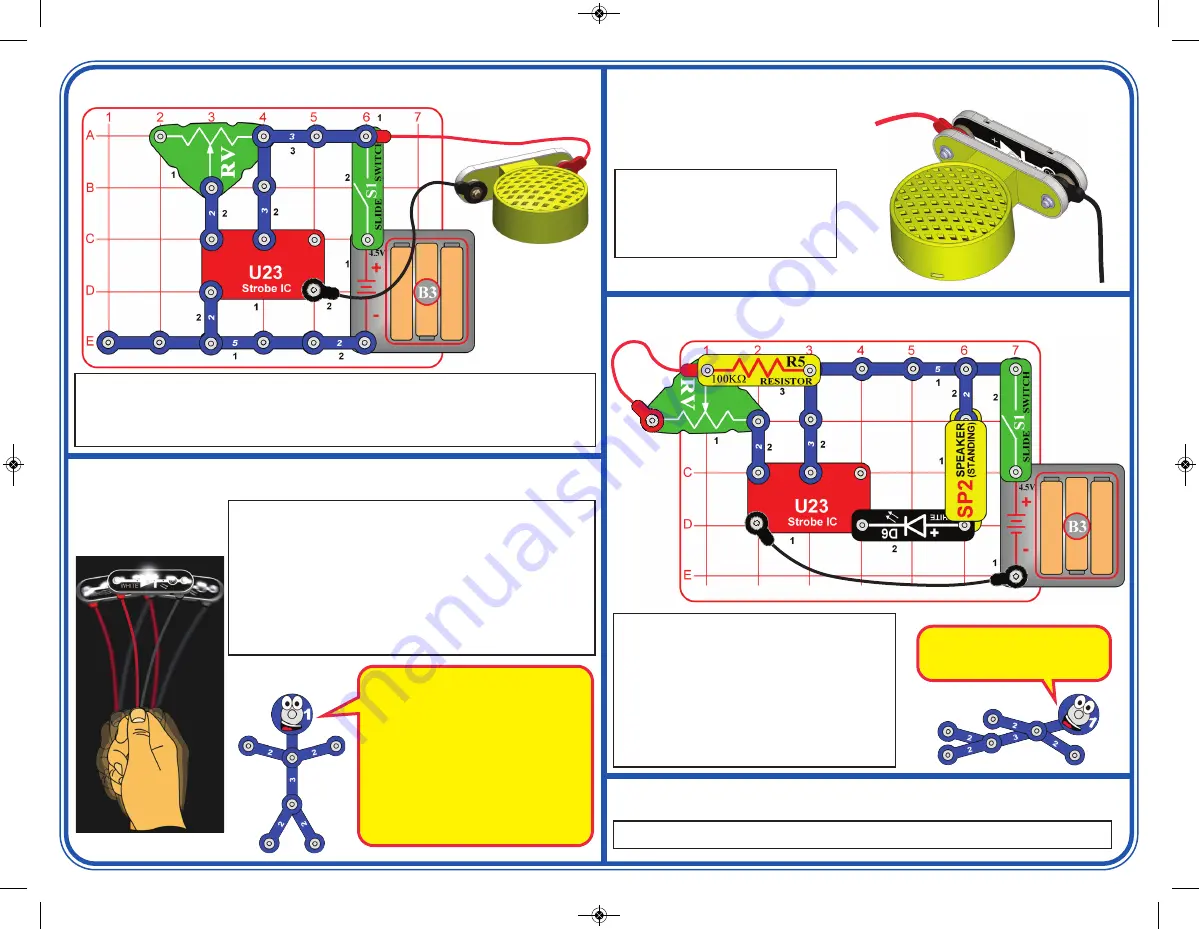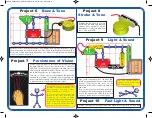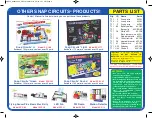
Project 7
Persistence of Vision
Use the circuit from project 6, but replace the speaker (SP2) with
the white LED (D6); connect the red wire to the “+” side of the
LED. Turn on the switch (S1) and adjust the flash rate of the
LED using the adjustable resistor (RV). At some RV settings
the LED will appear to be on continuously.
Take the circuit into a dark room and wave the white LED
around with your hand. Try it with the lever on the adjustable
resistor at different settings. The light from the LED will appear
to separate into short segments or dashes of light.
“Persistence of Vision” works because
the light is changing faster than your
eyes can adjust. Your eyes continue
seeing what they have just seen.
In a movie theater, film frames are
flashed on the screen at a fast rate
(usually 24 per second). A timing
mechanism makes a light bulb flash just
as the center of the frame is passing in
front of it. Your eyes see this fast series
of flashes as a continuous movie.
Project 8
Strobe & Tone
Combine the projects 6 & 7 circuits
by stacking the white LED (D6) and
speaker (SP2) together as shown.
Remember to connect the red wire to
the “+” side of the LED.
Turn on the slide switch (S1). The white LED
should be flashing and you hear sound from the
speaker (SP2). Move the lever on the
adjustable resistor (RV) to adjust the flash rate
and sound.
Note: In rare cases the circuit may not work at
all settings of RV. If this happens, move the RV
lever to the side near the strobe IC (U23), and
only move the RV lever over a small range.
Project 9
Light & Sound
This circuit is not as loud or as
bright as project 3, but won’t drain
your batteries as fast.
Use the circuit from project 9, but replace the 100k
W
resistor (R5) with a 3-snap wire.
Project 10
Fast Light & Sound
Project 6
Buzz & Tone
Build the circuit, connecting the speaker (SP2) with the red & black jumper wires as shown.
Turn on the switch (S1) and adjust the tone of the sound using the adjustable resistor (RV).
Most of RV’s range will produce a buzzing sound, but part of it will produce an interesting
tone. Try to make music with it.
SCP-14_022014.qxp_SCP-14 Instructions 3/7/14 2:37 PM Page 2






















